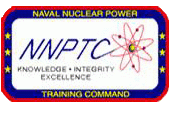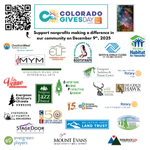- Posts: 15745
- Thank you received: 320
In Science We Trust: Poll Results on How You Feel about Scie
- ScienceChic
-
 Topic Author
Topic Author
- Mountain Champion
-

Less
More
25 Sep 2010 01:19 #1
by ScienceChic
"Now, more than ever, the illusions of division threaten our very existence. We all know the truth: more connects us than separates us. But in times of crisis the wise build bridges, while the foolish build barriers. We must find a way to look after one another as if we were one single tribe.” -King T'Challa, Black Panther
The truth is incontrovertible. Malice may attack it. ignorance may deride it, but in the end, there it is. ~Winston Churchill
This month's edition of Scientific American has the results of a recent poll they conducted (no cheating and peeking ahead of time!), along with the international journal of science Nature (it and Science are considered the top 2 journals in the world) on the public's trust in scientists and specific science issues. I was somewhat shocked by the results so I thought I'd conduct a small test here to see if our members mirror the 21,000 respondents of the original poll (not exactly the same - there will be sample difference [not the same pool of responders] and also they rated their trust on a scale of 1 to 5 with 1=Strongly Distrust, 3=Neutral, and 5=Strongly Trust, we'll just do a simple weighting of the topics based on number of votes). No peeking at the SciAm article (if you haven't already read it) - I'll post it here in 48 hours.
When asked whom the responders typically trusted to provide accurate information about important issues in society, scientists came out on top with a score of 3.98 average out of 5.
Scientists: 3.98
Friends or family 3.09
Nongovernmental organizations: 3.09
Citizen groups 2.69
Journalists 2.57
Companies 1.78
Elected officials 1.76
Religious authorities 1.55
When asked whom the responders typically trusted to provide accurate information about important issues in society, scientists came out on top with a score of 3.98 average out of 5.
Scientists: 3.98
Friends or family 3.09
Nongovernmental organizations: 3.09
Citizen groups 2.69
Journalists 2.57
Companies 1.78
Elected officials 1.76
Religious authorities 1.55
"Now, more than ever, the illusions of division threaten our very existence. We all know the truth: more connects us than separates us. But in times of crisis the wise build bridges, while the foolish build barriers. We must find a way to look after one another as if we were one single tribe.” -King T'Challa, Black Panther
The truth is incontrovertible. Malice may attack it. ignorance may deride it, but in the end, there it is. ~Winston Churchill
Please Log in or Create an account to join the conversation.
- Crazy Heart
-

- User is blocked
-

Less
More
- Posts: 70
- Thank you received: 0
25 Sep 2010 08:06 #2
by Crazy Heart
Replied by Crazy Heart on topic In Science We Trust: Poll Results on How You Feel about Scie
Very interesting.
I never thought of it this way.
I never thought of it this way.
Please Log in or Create an account to join the conversation.
- Rockdoc
-

- Mountain Legend
-

25 Sep 2010 09:25 #3
by Rockdoc
Replied by Rockdoc on topic In Science We Trust: Poll Results on How You Feel about Scie
SC I find it difficult to vote as there is no way to express how much. It's not just a matter of do or don't.
Please Log in or Create an account to join the conversation.
- major bean
-

- Mountain Legend
-

Less
More
- Posts: 2612
- Thank you received: 0
25 Sep 2010 17:06 #4
by major bean
Regards,
Major Bean
Replied by major bean on topic In Science We Trust: Poll Results on How You Feel about Scie
I agree with Rockdoc. Trust today will become laughable within 50 or 500 years. That has been proven during the thousands of years of civilization.
Limited trust or qualified acceptance is much more reasonable.
Limited trust or qualified acceptance is much more reasonable.
Regards,
Major Bean
Please Log in or Create an account to join the conversation.
- LOL
-

- Mountain Legend
-

Less
More
- Posts: 6393
- Thank you received: 18
25 Sep 2010 17:20 #5
by LOL
If you want to be, press one. If you want not to be, press 2
Republicans are red, democrats are blue, neither of them, gives a flip about you.
Replied by LOL on topic In Science We Trust: Poll Results on How You Feel about Scie
I would give elected officials a 0.0000.
Yeah, I trust engineers and scientists alot more. Most company managers get POd because we are too honest and say "stop the presses' and fix it. At least "non-management" Scientists do.
I would also give today's journalists a 0.5 They are more interested in ratings, shock stories and celebrity BS than anything else.
Yeah, I trust engineers and scientists alot more. Most company managers get POd because we are too honest and say "stop the presses' and fix it. At least "non-management" Scientists do.
I would also give today's journalists a 0.5 They are more interested in ratings, shock stories and celebrity BS than anything else.
If you want to be, press one. If you want not to be, press 2
Republicans are red, democrats are blue, neither of them, gives a flip about you.
Please Log in or Create an account to join the conversation.
- JMC
-

- Mountain Legend
-

Less
More
- Posts: 4508
- Thank you received: 7
25 Sep 2010 17:28 #6
by JMC
Replied by JMC on topic In Science We Trust: Poll Results on How You Feel about Scie
Gotta agree Joe, The party does not matter, they all lie. Why would a hopeful (Whitman, Fiorino,etc) pay tens of millions to secure a 160K job? Does not add up. They could spend that money and have more influence in other ways.
Please Log in or Create an account to join the conversation.
- LOL
-

- Mountain Legend
-

Less
More
- Posts: 6393
- Thank you received: 18
25 Sep 2010 17:34 #7
by LOL
If you want to be, press one. If you want not to be, press 2
Republicans are red, democrats are blue, neither of them, gives a flip about you.
Replied by LOL on topic In Science We Trust: Poll Results on How You Feel about Scie
You're right JMC both parties SUCK, but how do the elected officials get a 1.76/5 ? Must be they throw enough crumbs to the clueless sheep that they get some votes.
If you want to be, press one. If you want not to be, press 2
Republicans are red, democrats are blue, neither of them, gives a flip about you.
Please Log in or Create an account to join the conversation.
- ScienceChic
-
 Topic Author
Topic Author
- Mountain Champion
-

Less
More
- Posts: 15745
- Thank you received: 320
27 Sep 2010 12:00 #8
by ScienceChic
"Now, more than ever, the illusions of division threaten our very existence. We all know the truth: more connects us than separates us. But in times of crisis the wise build bridges, while the foolish build barriers. We must find a way to look after one another as if we were one single tribe.” -King T'Challa, Black Panther
The truth is incontrovertible. Malice may attack it. ignorance may deride it, but in the end, there it is. ~Winston Churchill
Replied by ScienceChic on topic In Science We Trust: Poll Results on How You Feel about Scie
The results:
http://www.scientificamerican.com/artic ... trust-poll
With 3.0 = Neutral, 4.0 = Trust, and 5.0 = Highly Trust, subjects in order from most trust to least trust what scientists say
Evolution 4.3
Renewable energy 4.08
Origin of the universe 4.0
Stem cells 3.97
Cancer causes 3.91
Cancer cures 3.74
Nuclear power 3.67
Climate change 3.66
Autism causes 3.53
Food safety 3.44
Vitamins and supplements 3.42
Genetically modified crops 3.39
Pesticides 3.33
Depression drugs 3.21
Flu pandemic 3.19 - this one surprised me the most
Our poll had Evolution, Origin of the universe, Stem cells, Nuclear power, and Climate change tying as the top votes, followed by Renewable energy, food safety, and Cancer causes. Cancer cures, flu pandemics, Genetically modified crops, and pesticides tied for 3rd. Interestingly, autism causes had only 1 vote, and vitamin/supplements and Depression drugs had no votes. Only Genetically modified crops, Pesticides, and Flu pandemics are vastly switched between our poll and SciAm's.
When science meets politics: a tale of three nations
Respondents who agree with the following statements:
1. Scientists should speak out about what the science says, but avoid advocacy
U.S. - 40%, China- 45%, Germany - 15% - Germans strongly believe in advocacy, US and China just over half do
2. Scientists should stay out of politics
U.S. - 17%, China - 45%, Germany - 8% - surprising that so many believe that scientists should get involved in politics
3. Scientists know best what is good for the public
U.S. - 21%, China - 35%, Germany - 20% - surprised at how low this is. comments, thoughts?
4. Scientists should pay attention to the wishes of the public, even if they think citizens are mistaken or do not understand their work
U.S. - 26%, China - 65%, Germany - 25% - glad to see this isn't any higher or we'd've never seen lead paint reform, cigarette warnings, CFC regulations, etc. I was kind of surprised to see this high of percentage considering that these were scientists or friends of/those sympathetic to science who were voting
More than 70 percent of respondents agreed that in tough economic times, science funding should be spared. When asked what should be cut instead, defense spending was the overwhelming pick.
Techno Fears
47% say nuclear power should be phased out and replaced with other sources of clean energy - I'm surprised that this was this high
26% say the government should act now to protect the public from the unknown risks of nanotechnology - not surprised, nanotech is not well known, but should be
23% do no approve of research on chimps under any circumstances - thought this would be lower
22% say GM crops pose unacceptable environmental and health risks and should not be planted - thought this would be higher
12% do not approve of research on non-primate mammals under any circumstances
8% do not approve of embryo research under any circumstances
7% say further research on artificial organisms should not take place until it can be proven safe
How comfortable are you with the risks associated with nuclear power? U.S. vs Europe
Not comfortable 18% (U.S.) vs 66% (Europe)
Somewhat comfortable 56% vs 27%
Totally comfortable 24% vs 5%
Don't know 2% vs 2%
How comfortable are you with the risks associated with nanotechnology?
Not comfortable 28% vs 23%
Somewhat comfortable 10% vs 11%
Totally comfortable 27% vs 33%
Don't know 36% vs 33%
How comfortable are you with the risks associated with genetically modified crops?
Not comfortable 13% vs 27%
Somewhat comfortable 34% vs 48%
Totally comfortable 53% vs 26%
Don't know 0% for both
Respondents who trust what scientists say about flu pandemics
69% in U.S. vs 31% in Europe
Climate Denial on the Decline
Over the past year, have your views about climate altered in any way?
U.S.: 49% my views have not changed, 37% I am more certain that humans are changing the climate (ratio of 2.7 more vs less certain), 14% I am more doubtful that human activity is affecting the climate
Australia: same as U.S.
Germany: 59% not changed, 31% more certain (ratio of 3.0 more vs less certain), 10% more doubtful
China: 23% not changed, 61% more certain (ratio of 3.8 more vs less certain), 16% more doubtful - Wow! They will be moving ahead of us quickly in renewable energy implementation, IMO.
Brazil: 17% not changed, 63% more certain (ratio of 3.2 more vs less certain), 20% more doubtful - not sure why the strength here
Japan: 48% not changed, 30% more certain (ratio of 1.3 more vs less certain), 22% more doubtful - funny considering they were the only nation to actually attempt to follow Kyoto protocol, with abyssmal results
Britain: 60% not changed, 27% more certain (ratio of 2.0 more vs less certain), 13% more doubtful
Canada: 46% not changed, 41% more certain (ratio of 3.4 more vs less certain), 12% more doubtful
France: 53% not changed, 29% more certain (ratio of 1.6 more vs less certain), 18% more doubtful
Italy: 44% not changed, 46% more certain (ratio of 3.8 more vs less certain), 12% more doubtful
Thanks to all who participated! Anything you'd like to comment on, discuss further, dispute?
http://www.scientificamerican.com/artic ... trust-poll
With 3.0 = Neutral, 4.0 = Trust, and 5.0 = Highly Trust, subjects in order from most trust to least trust what scientists say
Evolution 4.3
Renewable energy 4.08
Origin of the universe 4.0
Stem cells 3.97
Cancer causes 3.91
Cancer cures 3.74
Nuclear power 3.67
Climate change 3.66
Autism causes 3.53
Food safety 3.44
Vitamins and supplements 3.42
Genetically modified crops 3.39
Pesticides 3.33
Depression drugs 3.21
Flu pandemic 3.19 - this one surprised me the most
Our poll had Evolution, Origin of the universe, Stem cells, Nuclear power, and Climate change tying as the top votes, followed by Renewable energy, food safety, and Cancer causes. Cancer cures, flu pandemics, Genetically modified crops, and pesticides tied for 3rd. Interestingly, autism causes had only 1 vote, and vitamin/supplements and Depression drugs had no votes. Only Genetically modified crops, Pesticides, and Flu pandemics are vastly switched between our poll and SciAm's.
When science meets politics: a tale of three nations
Respondents who agree with the following statements:
1. Scientists should speak out about what the science says, but avoid advocacy
U.S. - 40%, China- 45%, Germany - 15% - Germans strongly believe in advocacy, US and China just over half do
2. Scientists should stay out of politics
U.S. - 17%, China - 45%, Germany - 8% - surprising that so many believe that scientists should get involved in politics
3. Scientists know best what is good for the public
U.S. - 21%, China - 35%, Germany - 20% - surprised at how low this is. comments, thoughts?
4. Scientists should pay attention to the wishes of the public, even if they think citizens are mistaken or do not understand their work
U.S. - 26%, China - 65%, Germany - 25% - glad to see this isn't any higher or we'd've never seen lead paint reform, cigarette warnings, CFC regulations, etc. I was kind of surprised to see this high of percentage considering that these were scientists or friends of/those sympathetic to science who were voting
More than 70 percent of respondents agreed that in tough economic times, science funding should be spared. When asked what should be cut instead, defense spending was the overwhelming pick.
Techno Fears
47% say nuclear power should be phased out and replaced with other sources of clean energy - I'm surprised that this was this high
26% say the government should act now to protect the public from the unknown risks of nanotechnology - not surprised, nanotech is not well known, but should be
23% do no approve of research on chimps under any circumstances - thought this would be lower
22% say GM crops pose unacceptable environmental and health risks and should not be planted - thought this would be higher
12% do not approve of research on non-primate mammals under any circumstances
8% do not approve of embryo research under any circumstances
7% say further research on artificial organisms should not take place until it can be proven safe
How comfortable are you with the risks associated with nuclear power? U.S. vs Europe
Not comfortable 18% (U.S.) vs 66% (Europe)
Somewhat comfortable 56% vs 27%
Totally comfortable 24% vs 5%
Don't know 2% vs 2%
How comfortable are you with the risks associated with nanotechnology?
Not comfortable 28% vs 23%
Somewhat comfortable 10% vs 11%
Totally comfortable 27% vs 33%
Don't know 36% vs 33%
How comfortable are you with the risks associated with genetically modified crops?
Not comfortable 13% vs 27%
Somewhat comfortable 34% vs 48%
Totally comfortable 53% vs 26%
Don't know 0% for both
Respondents who trust what scientists say about flu pandemics
69% in U.S. vs 31% in Europe
Climate Denial on the Decline
Over the past year, have your views about climate altered in any way?
U.S.: 49% my views have not changed, 37% I am more certain that humans are changing the climate (ratio of 2.7 more vs less certain), 14% I am more doubtful that human activity is affecting the climate
Australia: same as U.S.
Germany: 59% not changed, 31% more certain (ratio of 3.0 more vs less certain), 10% more doubtful
China: 23% not changed, 61% more certain (ratio of 3.8 more vs less certain), 16% more doubtful - Wow! They will be moving ahead of us quickly in renewable energy implementation, IMO.
Brazil: 17% not changed, 63% more certain (ratio of 3.2 more vs less certain), 20% more doubtful - not sure why the strength here
Japan: 48% not changed, 30% more certain (ratio of 1.3 more vs less certain), 22% more doubtful - funny considering they were the only nation to actually attempt to follow Kyoto protocol, with abyssmal results
Britain: 60% not changed, 27% more certain (ratio of 2.0 more vs less certain), 13% more doubtful
Canada: 46% not changed, 41% more certain (ratio of 3.4 more vs less certain), 12% more doubtful
France: 53% not changed, 29% more certain (ratio of 1.6 more vs less certain), 18% more doubtful
Italy: 44% not changed, 46% more certain (ratio of 3.8 more vs less certain), 12% more doubtful
Thanks to all who participated! Anything you'd like to comment on, discuss further, dispute?
"Now, more than ever, the illusions of division threaten our very existence. We all know the truth: more connects us than separates us. But in times of crisis the wise build bridges, while the foolish build barriers. We must find a way to look after one another as if we were one single tribe.” -King T'Challa, Black Panther
The truth is incontrovertible. Malice may attack it. ignorance may deride it, but in the end, there it is. ~Winston Churchill
Please Log in or Create an account to join the conversation.
- FredHayek
-

- Mountain Legend
-

Less
More
- Posts: 30137
- Thank you received: 178
27 Sep 2010 13:30 #9
by FredHayek
Thomas Sowell: There are no solutions, just trade-offs.
Replied by FredHayek on topic In Science We Trust: Poll Results on How You Feel about Scie
When I was young & in school, I used to think there was one answer to everything. Now my black and white world is varying shades of grade. And in the world of science, it seems the scientists do disagree with each other often.
Same in the worlds of religion, politics, economics. So I would have to say I now have to balance the opposing arguments and filter them before I decide what is true, or closer to the truth.
Same in the worlds of religion, politics, economics. So I would have to say I now have to balance the opposing arguments and filter them before I decide what is true, or closer to the truth.
Thomas Sowell: There are no solutions, just trade-offs.
Please Log in or Create an account to join the conversation.
- bailey bud
-

- Mountain Legend
-

Less
More
- Posts: 1849
- Thank you received: 0
28 Sep 2010 14:13 #10
by bailey bud
Replied by bailey bud on topic In Science We Trust: Poll Results on How You Feel about Scie
How much do you trust what scientists say about the following topics:
What do I trust most?
Food safety (clean food/water alone would save millions of lives each year)
Nuclear power
Renewable energy
(I put these two together, to the degree that we can make better use of emergy sources -
perhaps saving some for less fortunate)
Cancer causes (I like prevention more than cures - let's avoid turning physicians into mad chemists)
Pesticides and genetic engineering didn't make my list. Why? Because we already have enough food on the planet to feed the world (problem is distribution, not production). I also think we have enough fake food, as it is. There's been some amazing developments over the past decade. However, I don't see nearly as much need for these developments as I do for something like energy.
Regarding evolution - I don't deny its existence. At the same time, I'mmostly interested in science/discoveries that save lives or improve the standard of living.
What do I trust most?
Food safety (clean food/water alone would save millions of lives each year)
Nuclear power
Renewable energy
(I put these two together, to the degree that we can make better use of emergy sources -
perhaps saving some for less fortunate)
Cancer causes (I like prevention more than cures - let's avoid turning physicians into mad chemists)
Pesticides and genetic engineering didn't make my list. Why? Because we already have enough food on the planet to feed the world (problem is distribution, not production). I also think we have enough fake food, as it is. There's been some amazing developments over the past decade. However, I don't see nearly as much need for these developments as I do for something like energy.
Regarding evolution - I don't deny its existence. At the same time, I'mmostly interested in science/discoveries that save lives or improve the standard of living.
Please Log in or Create an account to join the conversation.
Time to create page: 0.156 seconds






